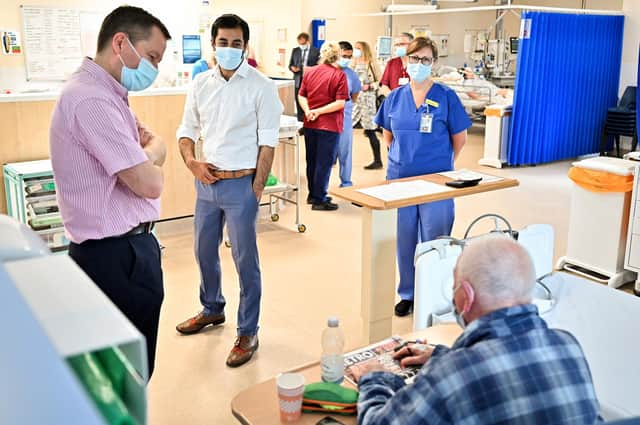NHS needs to rediscover ideas that once transformed the health service for the better – Professor Harry Burns


Many readers might sigh at the thought of more reform of the NHS. However, I think what Paul was calling for was the rediscovery of many of the ideas which led to transformational change in the NHS more than two decades ago. Given that he was in charge of the NHS for several years, he should be listened to.
In 1997, Liam Donaldson – a surgeon who had retrained in public health and who had been influenced by the quality improvement methods used in industry – began to look at the use of such methods in healthcare.
Advertisement
Hide AdAdvertisement
Hide AdThe risk of death during an anaesthetic was comparable to the risk of death on a commercial aircraft flight. Airlines took enormous efforts to minimise those risks. Shouldn't the NHS have similar safety procedures? In 2000, Donaldson, by then England's Chief Medical Officer, published a report which launched the patient safety movement in England.
Another great leap forward in improving the quality of NHS services occurred in Scotland. In 2008, the Scottish Patient Safety programme was launched.
In partnership with the Institute for Healthcare Improvement (IHI) in the US, Professor Jason Leitch led a programme which dramatically reduced the number of hospital infections, reduced the length of stay in intensive care and significantly improved post-operative mortality.
Don Berwick, then the president of the IHI, said: “The Scottish Patient Safety Programme marks Scotland as a leader, second to no nation on Earth, in its commitment to reducing harm to patients, dramatically and continually.”
These improvements were made by frontline workers testing ideas and sharing information on what worked. The role of politicians and senior NHS managers in this process was not to tell staff what to do, but simply to show support for the design and implementation of improvements.
There is no doubt that frontline NHS staff in Scotland learned how to improve a complex health system. Improvement in England seems to have slowed as the NHS has been reorganised and it now seems to involve more central control.
However, there is no doubt that further improvements are needed in Scotland’s public services.
For the last 18 months, government has been understandably focused on control of the pandemic. Now, other problems are emerging which need to be tackled using the lessons of improvement science.
Advertisement
Hide AdAdvertisement
Hide AdThis week, we saw reports that Scotland has the highest mortality of under-18s in western Europe. A quarter of the deaths are thought to be preventable.
The response of the government suggests improvement methods might be used in tackling the problem. Public health minister Maree Todd has sensibly asked that data be collected to define the causes of the problem.
Then, frontline staff from various agencies should review that data. They should then get together to share and test ideas for improving the health and well-being of these young people – spreading the learning from this process would prevent ill-health and deaths among them.
In Jason Leitch, she certainly has a world-leading expert in the field to help.
Sir Harry Burns is a Strathclyde University professor and ex-Chief Medical Officer for Scotland
A message from the Editor:
Thank you for reading this article. We're more reliant on your support than ever as the shift in consumer habits brought about by coronavirus impacts our advertisers.
If you haven't already, please consider supporting our trusted, fact-checked journalism by taking out a digital subscription.
Comments
Want to join the conversation? Please or to comment on this article.
